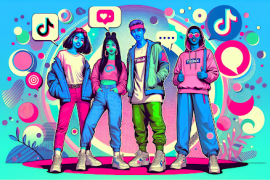Audio and video recordings have taken centre stage in New York, sparking debates on their legality. In a state where these videos can safeguard privacy or serve as vital evidence, comprehending New York’s laws is paramount. With numerous scenarios where videos might be viewed as invasive or just, navigating this legal landscape can be challenging. Individuals must grasp the intricacies of these regulations to safeguard their rights and responsibilities effectively.

Stopping a screen recording on your Mac is simple, especially when using QuickTime. To begin, launch QuickTime and commence your screen capturing. As you proceed, you might wonder how to stop screen recording on Mac Quicktime, It’s simple! Once you’re ready to end, locate the QuickTime icon in your menu bar and click on it. A dropdown will appear; you can select the “stop recording” option from there. The QuickTime screen will stop, and you’ll receive a prompt to save your video.
So, whether you search for how to stop QuickTime screen recording, QuickTime how to stop screen recording, or QuickTime stop screen recording, the process remains consistent and easy to execute.
Is New York a One party Consent State?
New York falls under the umbrella of one-party consent states. This signifies that, at least New York one party consent involved in the conversation must be aware of the recording for it to be lawful. This is a pivotal aspect of New York laws that influences the legality of many videos done within the state.
Can I Sue Someone for Recording Me Without My Permission in NY?
Suing someone for recording you without permission in New York depends on various factors. New York follows one-party consent for video shooting within conversations, allowing participants to record. However, if someone is not part of the conversation records, they could face criminal charges under N.Y. Penal Law § 250.05, simplifying civil cases.
In cases like revenge porn, covered by N.Y. Penal Law § 250.55, illegal actions make civil damages easier to prove, carrying a potential one-year jail term. Legal videos pose no criminal recourse in areas without expectation of privacy, like public streets, though pursuing a civil case may have lower chances of success. The ability to sue largely hinges on the circumstances, damages, and legal framework surrounding the video in New York.
Can You Video Record Someone Without Their Consent in NY?
Video shooting laws share some common ground with audio laws but have distinct differences. In New York, video capturing in public places is generally permissible. However, capturing someone without their consent in private spaces or in a manner that invades their privacy is against the law.
New York Recording Laws at a Glance

New York’s laws have become a focal point, balancing individual privacy and the pursuit of justice. New York’s laws strike a balance between privacy and transparency. Here is a snapshot of the state’s regulations, ensuring individuals are well-informed about their rights and responsibilities.
Consent for Audio Recording
While New York is a one-party consent state, it’s essential to clarify that the person providing consent must actively participate in the conversation. If you want to record a conversation where you are absent, all parties involved must consent.
Video Recording in Public Places
Video shooting is often allowed, but it’s essential to ensure it’s conducted in areas where individuals don’t have a legitimate expectation of privacy. Always exercise caution to avoid video shooting in ways that might be viewed as harassment or stalking.
Private Spaces and Invasion of Privacy
When it comes to video shooting in private spaces, privacy expectations are higher. Like many states, New York may have specific laws or regulations about shooting in private places. Individuals should know these laws and obtain consent when shooting in someone’s personal space.
Legal Ramifications
It’s crucial to mention that there can be legal consequences for unlawful video capturing in New York. Individuals who record conversations or videos without proper consent could face civil liability and, in some cases, criminal charges.
Audio and Video Recording for Legal Evidence
Complying with video shooting laws is essential. Audio and videos can be invaluable tools in legal contexts when done legally. These videos can be presented as evidence in court if related to a legal matter. Such evidence can be instrumental in affirming or resolving legal arguments and conflicts.
Understanding New York audio laws is essential for residents and visitors. In New York, you can record audio conversations as long as you are part of the conversation, thanks to its one-party consent rule. This means you can record your conversations without needing permission from others.
However, New York has stricter rules regarding video recordings, especially in private settings. You must obtain consent from all parties involved to record video in places where people reasonably expect privacy.



